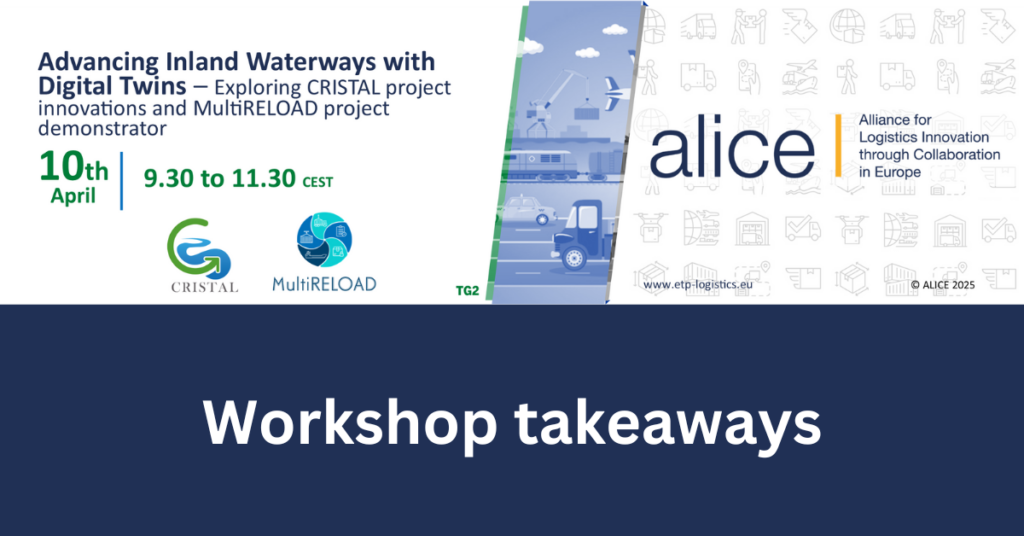Thursday, April 17th, 2025
On 10 April 2025, ALICE hosted a well-attended and highly interactive workshop “Advancing Inland Waterways with Digital Twins – Exploring CRISTAL project innovations and MultiRELOAD project demonstrator.” The event brought together over 50 participants from across Europe, reflecting growing interest in the role of Digital Twins in enhancing inland waterway transport (IWT).
Digital Twins are increasingly seen as a critical enabler for more resilient, efficient, and sustainable inland navigation. During the two-hour online workshop, speakers from research organisations, ports, logistics technology providers, and EU-funded projects CRISTAL and MultiRELOAD demonstrated practical applications of these technologies, while panel discussions and live Q&A sessions helped to assess the maturity and potential of Digital Twins for IWT.
CRISTAL project: operational decision support with Digital Twins
Orestis Tsolakis (CERTH) and Edwin van Hassel (University of Antwerp) presented the CRISTAL project’s Synchromodal Corridor Management System (SCMS) and its integration with Digital Twins. These tools are designed to improve operational decision-making and increase resilience of inland waterway networks through:

The value proposition of the SCMS was detailed using a business model canvas approach, highlighting the system’s ability to reduce uncertainty for logistics operators and infrastructure managers alike.
MultiRELOAD project: environmental monitoring in ports
José Antonio Clemente Pérez (Prodevelop) presented a Digital Twin demonstrator applied in the Port of Duisburg. The platform enables real-time monitoring of environmental conditions, emission levels, and infrastructure performance, with features such as
The demonstrator will be further developed into a commercial solution and can be tailored to support port authorities, terminal operators, and urban logistics stakeholders.
Bridging innovation and practical use
Moderated by Tammo Märtens (Fraunhofer IML) and Tomasz Dowgielewicz(ALICE), the panel included representatives from Duisport, Hafen Wien, Fundación Valenciaport, CERTH, Prodevelop, and ITA. Key messages included:
The interactive Slido session echoed these insights, with participants identifying a lack of digital infrastructure and data sharing as the biggest barriers, and resilience, multimodal synchronisation, and predictive maintenance as the key benefits of Digital Twins in IWT.
